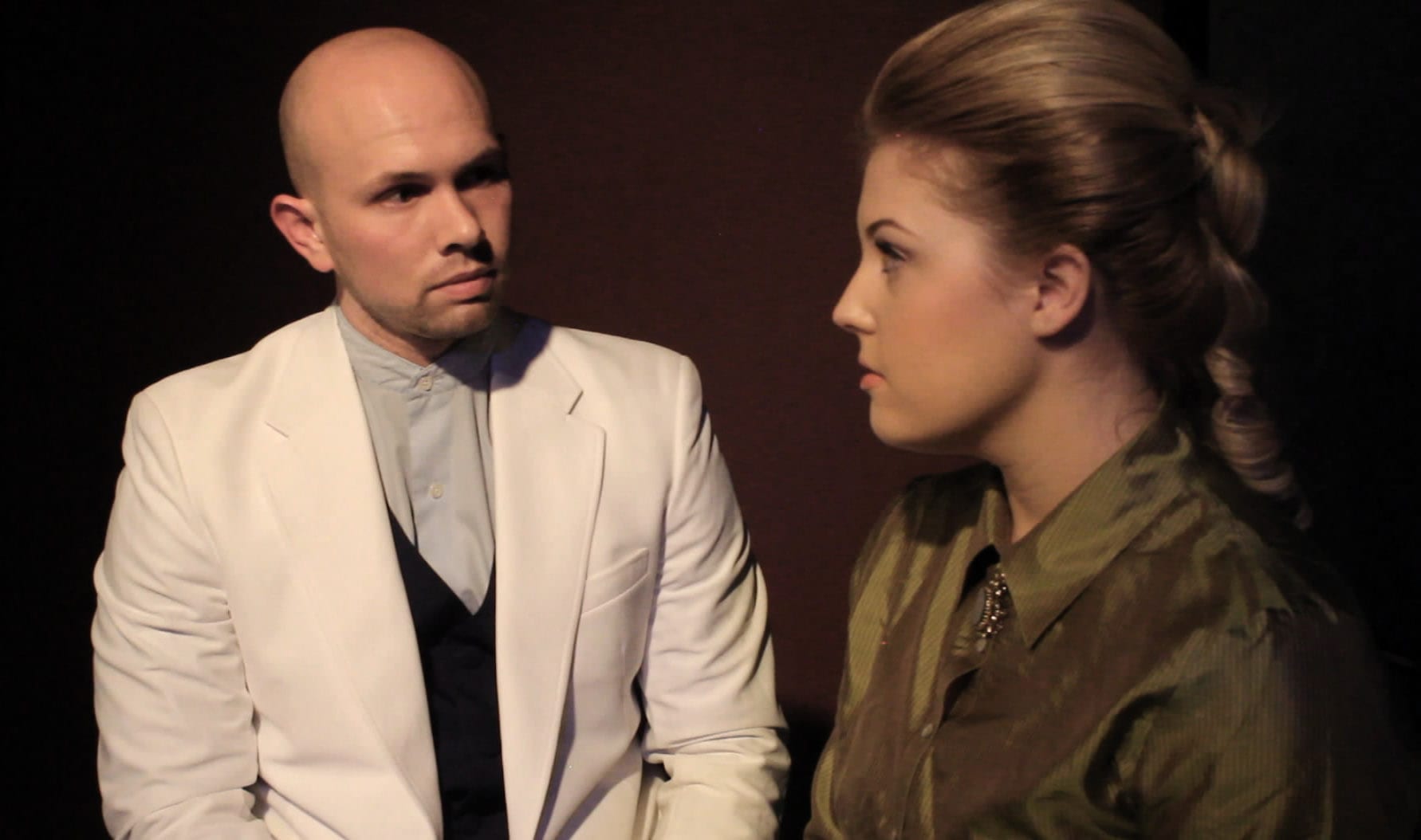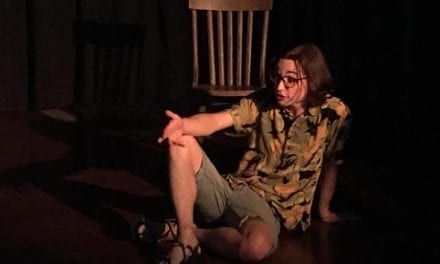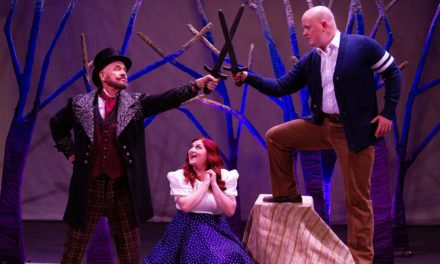PROVO — Okay, so here’s the thing about Hedda Gabbler by the Utah Shakespeare in the park company at the Echo Theatre: No one is seeing it. Now for some plays in Utah that can be arguably a very good thing, but in this case it is decidedly not. There are four reasons why:
First: The Echo Theatre – As many of you know the theater is brand new, and as the new sign on university avenue (frankly, it’s a really great sign) lures patrons into its doors, Theater founder Jeff Blake and his compatriots are doing a mighty work trying to make a local theater venue that both gives refuge for local art and is a commercial success (because without that, you can’t stay in business). I wish Blake and his colleagues the best of luck, as you should too. The inside will, I am sure, evolve into a more refined and accommodating space for both its audience and the players, but for a brand new venue, they’re off to a good start. And getting our butts in the seats will assure they can keep moving forward.
Second: the cast – From the old familiar-to-me face of Joseph Reidhead who does a bang-up job as George Tesman, to Jennifer Stewart who is very comfortable in her skin as Hedda, to what, in my humble judgement was the standout sympathetic performance of Kevin O’Keefe as Ellert Lovborg. All of the actors do a sturdy and respectable job of making me feel like they care about what is happening to them, and that you should too. Granted, the performances aren not flawless. Sometimes the cast relies too heavily on loudness and bursts of exuberance and conversational laughter to carry scenes that could find a much more authentic and ensnaring energy by connecting with the emotional subtext and subtlety of what is happening in the scene. This criticism isn’t to suggest that the cast come off as fake, just a little muddy and perhaps a little too stagey. The exhuberance and laughter serve as crutches in the face of what may be a short rehearsal time in a small, low budget production such as this. Although the younger actors fall into this trap more than the seasoned ones, all of them deserve to feel proud of their work and the love and dedication for it that comes across to the audience.
Third: the director – Now, I’d never met Lawrence Fernandez until after the performance the night I attended, but he seems like a good, talented and clear eyed chap who has enough emotional sensitivity and sense about him to let his actors have some freedom while not letting them play to excess. Fernandez seems to know how to direct a deep, probing text without getting in the way, and how to keep the motion of the piece moving in the right direction. Although this is a basic requirement for a director, I believe that it is a balance accomplished by far too few directors. The only advice I would offer to Fernandez is to pay attention to the dramatic volume of the moment. Sometimes the emphasis fell on things that, while they may be easy moments for the actors to play up, are not the moments that need the punctuation. As such, while the emotional interplay of the characters felt believable and engaging, some of the more subtle but powerful moments of the text got run over by stage action and a lack of relative dramatic volume. I think Fernandez should let his actors play and find their footing, and then get in their with the volume knob and turn down the distractions and turn up the subtext that creates his unique reading of the text with the volume of space and pace and intensity and staging. The play was certainly enjoyable and competent, but I could have left the theater with more lingering in my mind to think about if the work had had more subtlety to it.
Fourth: The script. Ibsen knew how to write, and he knew how to get at subtext and social implication with an economy of words that makes seeing a scene unfold into meaning an intriguing little trick of magic. What’s more, Hedda Gabler is a play that considers social roles and how their adjustments with the changing fashions of the time created disjunction and disharmony in the lives of people. These characters learned the rules to a social game that is no longer being played the same—just as we are today. In the end, the play is a thought experiment that lots of people in this area would do well to engage in.
So, four great reasons to go see Hedda Gabler. But not too many people seem to be taking the bait. Part of it is, I suspect, the revolving door of well-intended local shops that have graced the Echo’s space and the many like it nearby. Maybe people just stop paying attention, even when something exciting is happening in downtown Provo. Part of the reason that this show is neglected, though, is the fact that Provo audiences are notoriously stingy for actually paying for entertainment if it isn’t enshrined in the value-priced and safely familiar branding of BYU, Comedy Sportz, or the Movies 8.
The final reason I believe that few people are attending Hedda Gabler is that if you don’t have a friend or child in the show, you would have been hard pressed to know anything about it. Utah Shakespeare in the Park is almost going out of it’s way to be inconspicuous with this production. There is next to no online advertising, even on Utah Shakespeare in the Park’s own website. To see that they had a current show you would have to search through blog posts, and even then, you’re not immediately sure when it plays. Sure, you can find it, but only if you’re really looking. And if your show is relying on only getting the people who are really looking for it, well you shouldn’t be surprised by a nearly empty theater. It’s not enough to throw up a couple posters and create a non-descript Facebook invite. If you want all the effort it took to put a good show up on the stage to be worth it, then everyone, especially the director and support staff need to work to get the seats full and honor the sacrifices that created the thing on stage.
One final message for Utah Shakespeare in the Park: kill the free opening short (The Bear by Anton Chekhov), which is sloppily acted and directed. The play feels like the people involved spent the afternoon just goofing around and now want to trouble me with indulging them. Plus, it’s another confusing to an an audience who came to see something else and makes the show too long. This isn’t a college class.
So, while the evening isn’t perfect, I think that it’s a shame that a perfectly enjoyable and lovely production of a classic script is being neglected amid the empty storefronts of downtown Provo. Go see Hedda Gabler to support a great script, a good production, and space worthy of your patronage. With the remnants of all the other failed ventures that you can find around downtown Provo, there are plenty of reminders of the consequences if you don’t.







